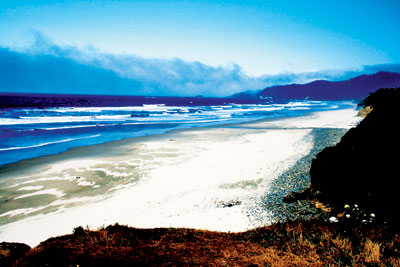All Nonfiction
- Bullying
- Books
- Academic
- Author Interviews
- Celebrity interviews
- College Articles
- College Essays
- Educator of the Year
- Heroes
- Interviews
- Memoir
- Personal Experience
- Sports
- Travel & Culture
All Opinions
- Bullying
- Current Events / Politics
- Discrimination
- Drugs / Alcohol / Smoking
- Entertainment / Celebrities
- Environment
- Love / Relationships
- Movies / Music / TV
- Pop Culture / Trends
- School / College
- Social Issues / Civics
- Spirituality / Religion
- Sports / Hobbies
All Hot Topics
- Bullying
- Community Service
- Environment
- Health
- Letters to the Editor
- Pride & Prejudice
- What Matters
- Back
Summer Guide
- Program Links
- Program Reviews
- Back
College Guide
- College Links
- College Reviews
- College Essays
- College Articles
- Back
Orcas Should Stay Out of Tanks
For many years, people have found amusement in seeing orcas perform and being displayed in marine parks and aquariums for profit. Other types of animals can adapt to the life of captivity better because it is easier for their natural habitats to be replicated in a limited amount of space. Orcas are a rather large type of whale, so to be put in captivity they need much more space than we give them to sustain a healthy and semi normal lifestyle. Orcas in particular also travel very large distances in the wild, so their mental state is compromised by them being in such confined spaces. Orcas should not be on display on our part because we cannot properly give them the lifestyle they need to live and prosper.
The main reason why orcas are put in captivity is for profit and entertainment. The benefits to this are that zoos and marine parks create family bonding time and expose animals to people to promote conservation of animals in the wild or the well being of them. "Zoos educate the public and foster an appreciation of the animals. This exposure and education motivates people to protect the animals” (“Arguments” 4). This can be an alternate way for people to learn about different species, but I believe that orcas should specifically be left alone. Zoos can be a great idea, along with marine parks, but there should be limits on what we should put on display in those parks.
Many people are concerned about the aggression of orcas, when the only reason they are aggressive is because they are in captivity. Orcas are a peaceful species in the wild, but they change when they do not live normal lives. Orcas swim up to 100 miles per day in the wild, which is amazing compared to the little amount of exercise and freedom they get in captivity. Also, captive orcas sometimes suffer from a collapsed dorsal fin which is “rarely seen in wild orcas” because orcas in their natural habitat do not have to swim the same direction in a small area and spend as much time at the surface as captive orcas (Cronin 13). What I think of is how we would like it if the situation was reversed. If our sole purpose was to perform and be locked up how would we like to be stared at all day? Of course this way of thinking can then spread the all captive animals, but orcas should specifically not be held captive for entertainment because of our inability to sustain their normal lifestyle.
The space that orcas use in the wild is no match for the space that they have in captivity, along with having to interact with orcas from completely different parts of the world. Our inability to give them the supported lifestyle they would normally need proves that we should not force them to go against every natural instinct they have. Orcas should not be exhibited in marine parks and aquariums. In particular, their lifestyle is better suited for the wild, and animals of their size should not be made as objects of entertainment because of how hard it is to keep them comfortable.
Works Cited
“Arguments For and Against Zoos”. About.com. n.p. 31 March 2014. Web. 24 September 2015.
Cronin, Aisling. “Killer Whales Don’t Belong in Captivity - Here’s Why”. Onegreenplanet.org. n.p. 27 November 2013. Web. 24 September 2015.

Similar Articles
JOIN THE DISCUSSION
This article has 0 comments.

I hope that a wider audience will be informed on this subject and the importance of why animal captivity can be unusually cruel to certain animals.